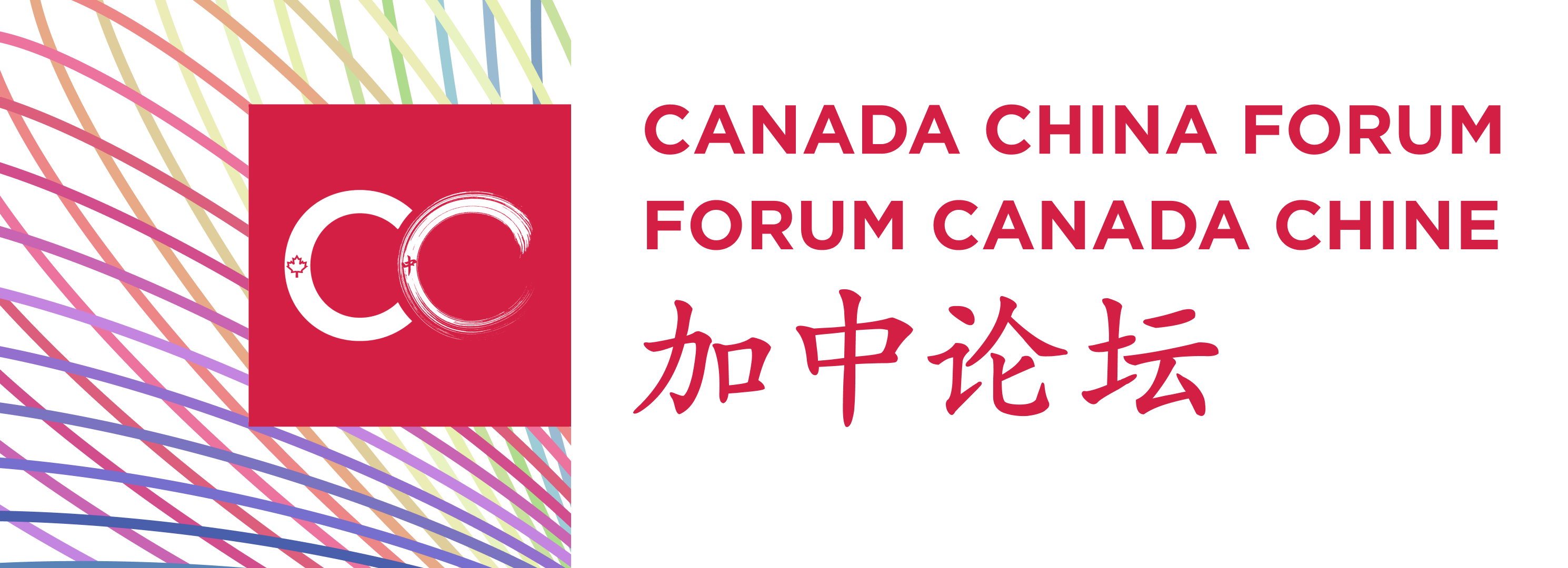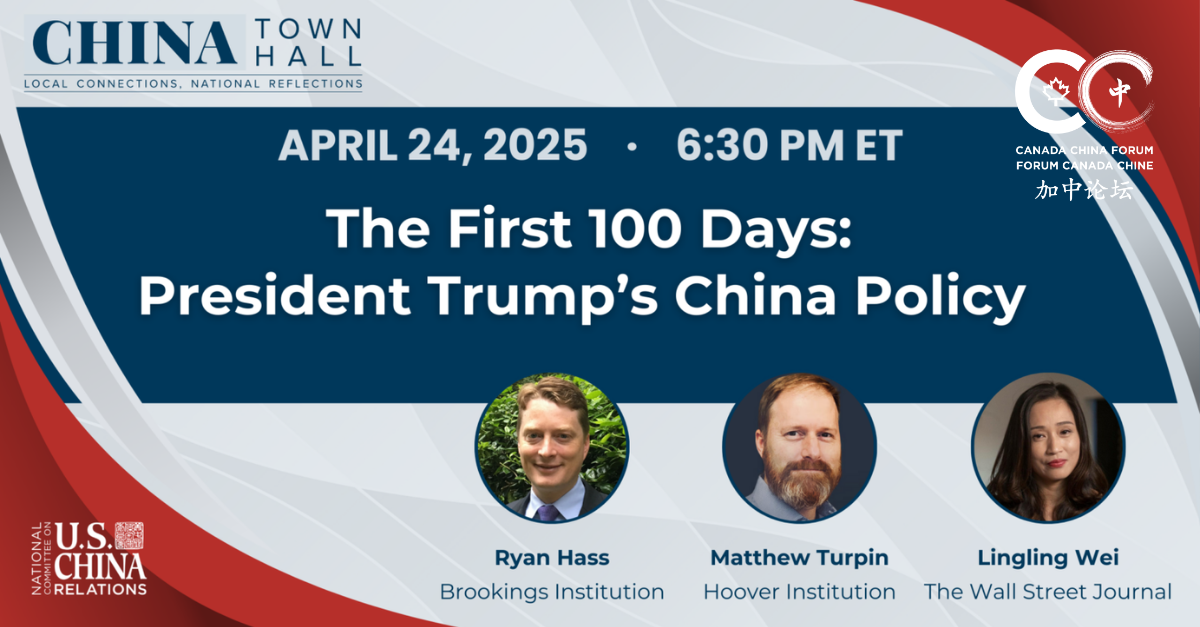ONLINE PROGRAMMING | April 24 | 6:30 PM – 7:30 PM EST | MEMBERS AND NON-MEMBERS
CHINA Town Hall (CTH), a program that provides a snapshot of the current U.S.-China relationship and examines how that relationship reverberates at the local level – in our towns, states, and nation – connects people around the country with U.S. policymakers and thought leaders on China. For the past three years, the Canada China Forum has served as a hosting partner of the virtual program, convening in-depth discussions with leading thinkers and Forum members to reflect on key insights shared by the Town Hall speakers.
The 2025 CHINA Town Hall program will take place on Thursday, April 24, at 6:30 p.m. ET/3:30 p.m. PT, to discuss President Trump’s China policy 100 days in, with featured speakers Ryan Hass, Director of John L. Thorton China Center at the Brookings Institution, Matthew Turpin, Visiting Fellow at the Hoover Institution, and Lingling Wei, Chief China Correspondent at The Wall Street Journal.
Since CTH launched in 2007, the National Committee has proudly partnered with a range of institutions and civic groups, colleges and universities, trade and business associations, world affairs councils, and think tanks to convene town halls and bring this important national conversation to local communities around America (and a few overseas). The Canada China Forum is a proud hosting partner of the China Town Hall.
REGISTER FOR THE ONLINE SESSION HERE
The National Committee on United States-China Relations is a non-profit educational organization that encourages understanding of China and the United States between citizens of both countries. The Committee’s continuity of experience and depth of associations with senior officials and distinguished citizens of China and the United States make it a unique national resource. Established in 1966 by a broad coalition of scholars and civic, religious, and business leaders, the Committee was founded in the belief that vigorous debate of China policy among Americans was essential and that balanced public education could clarify U.S. interests and strengthen our foreign policy. Similarly, the founders believed that over time dialogue with Chinese citizens would enhance mutual understanding, a basic requirement for stable and productive relations.



